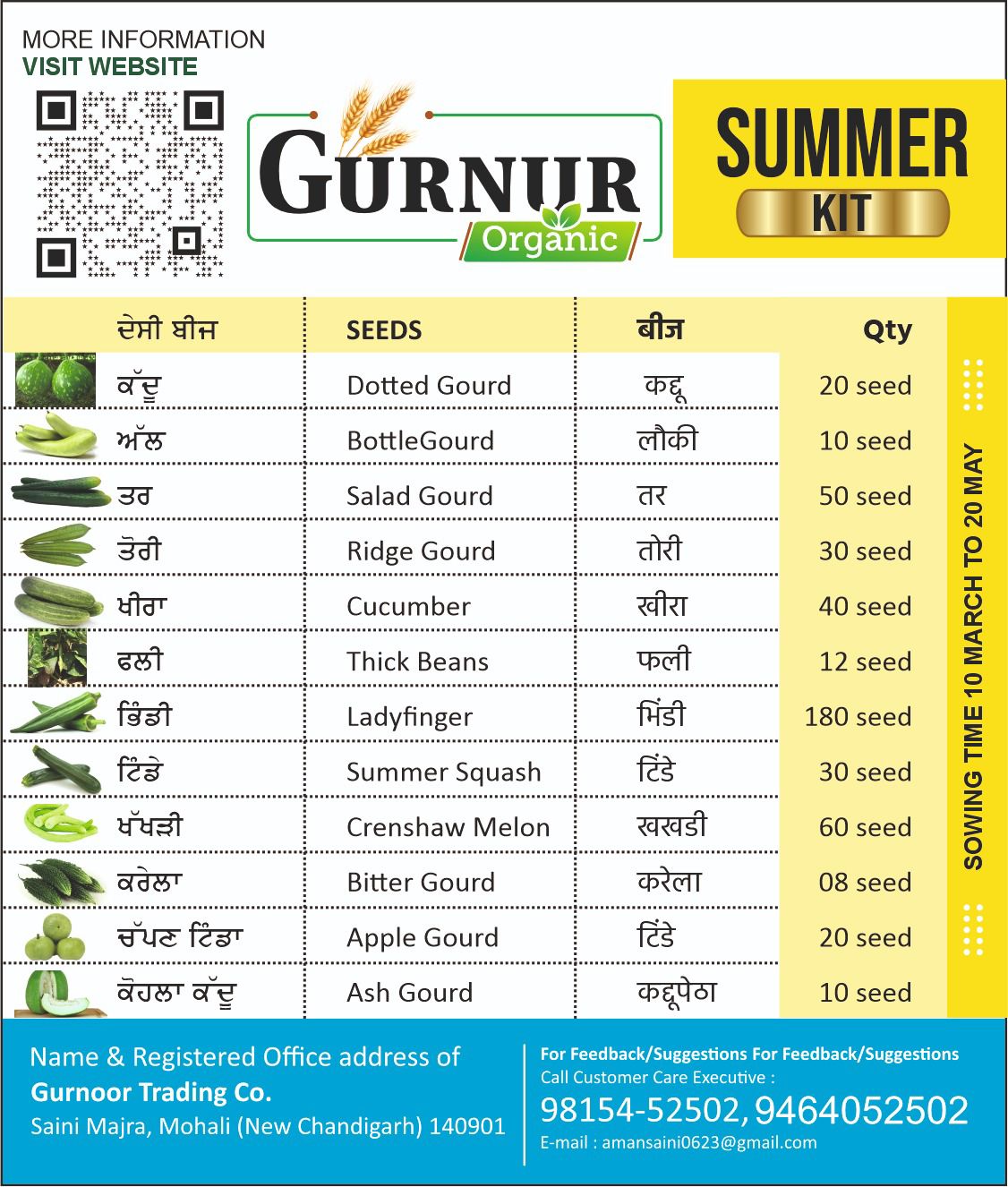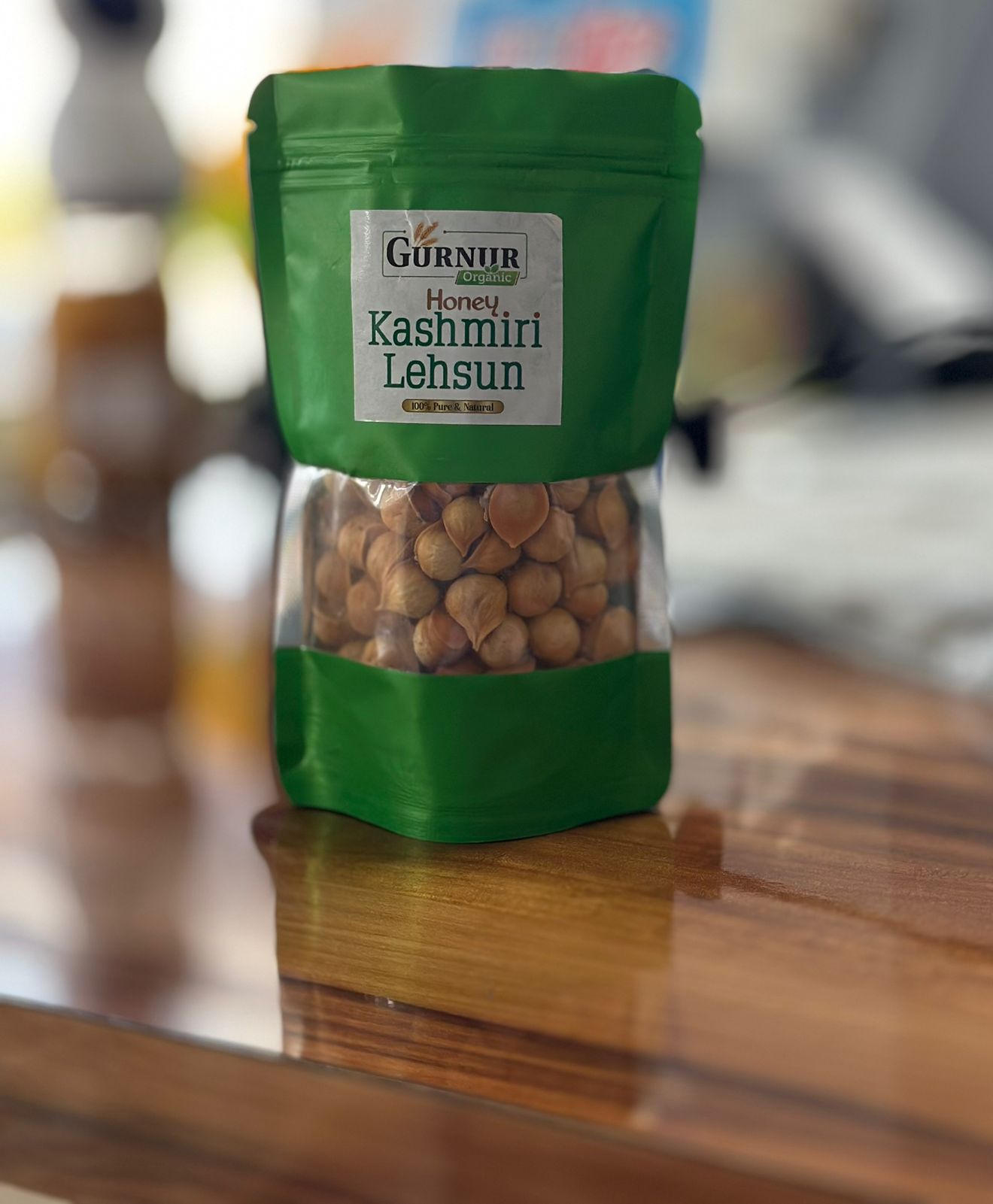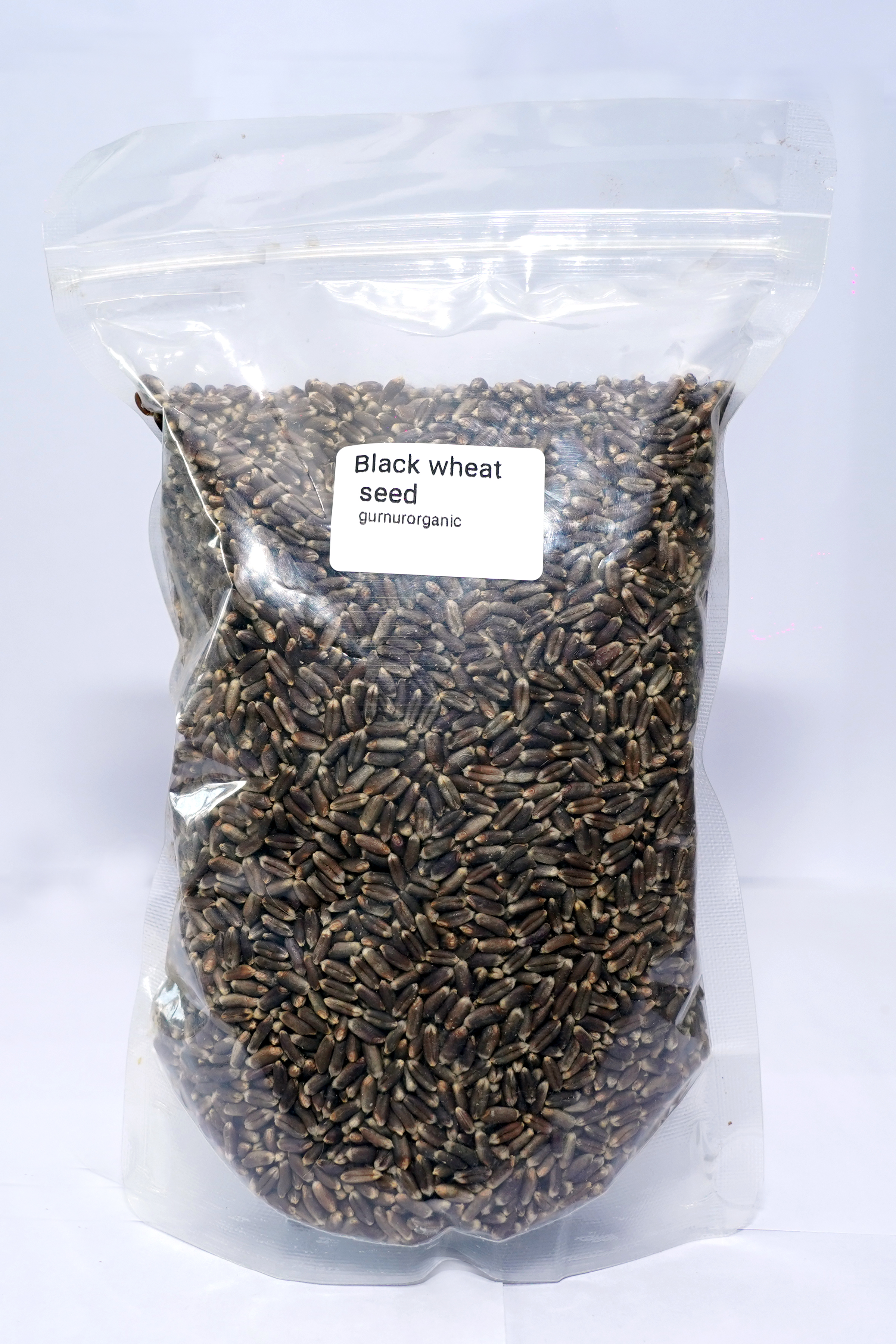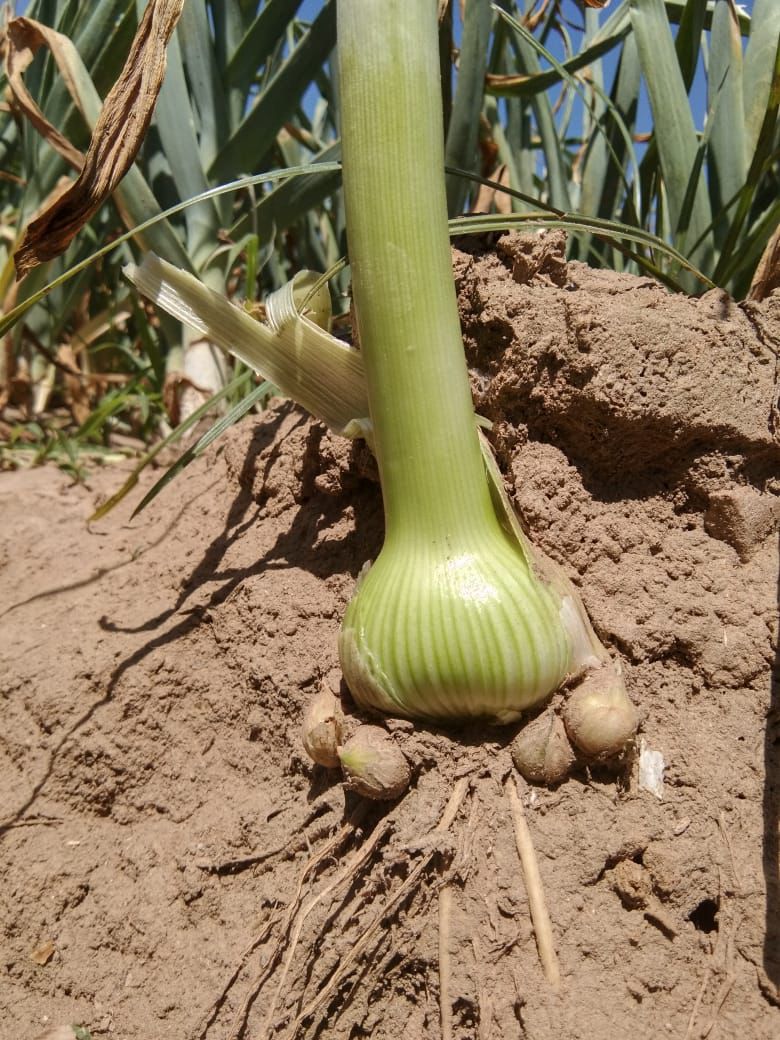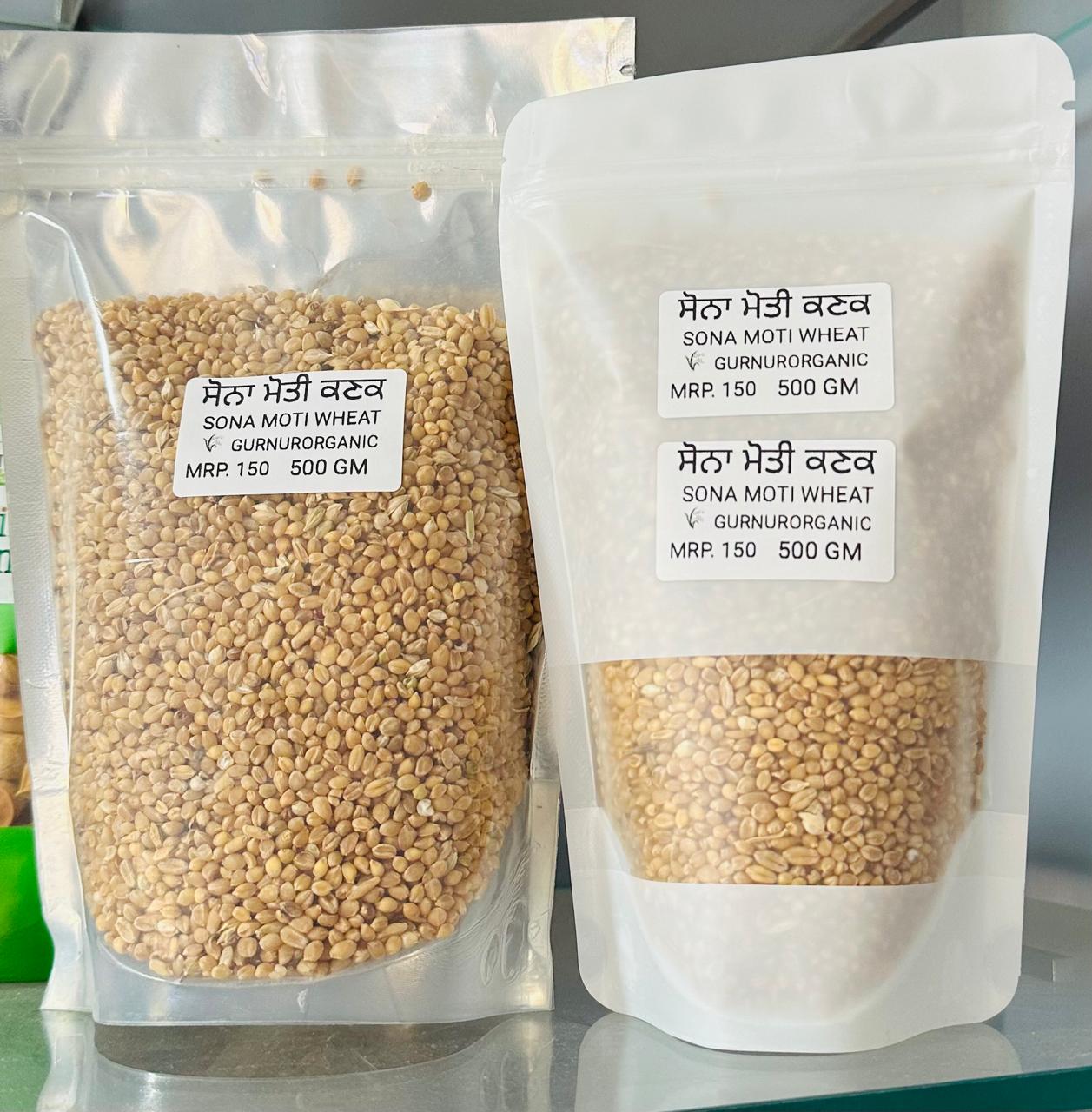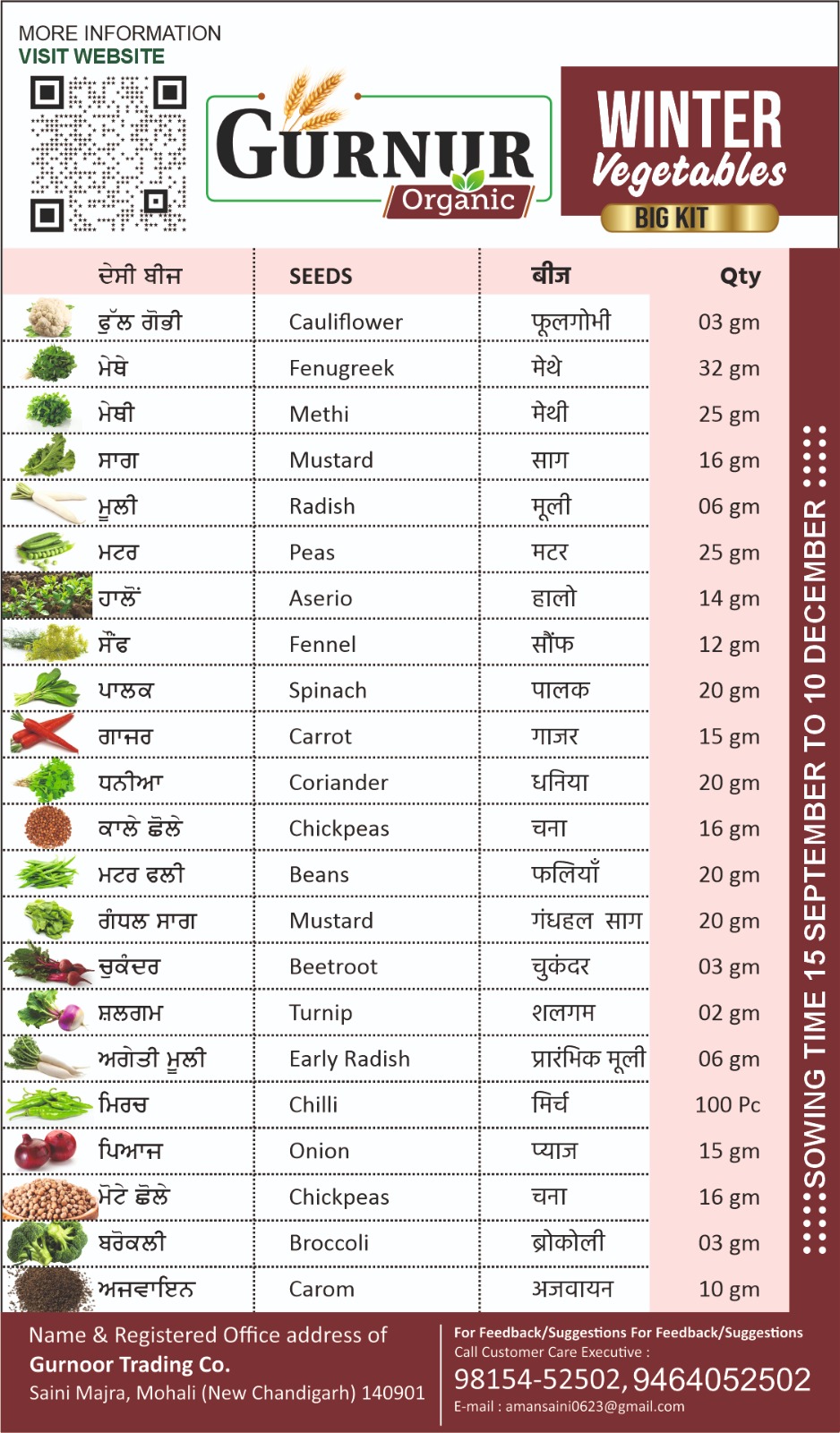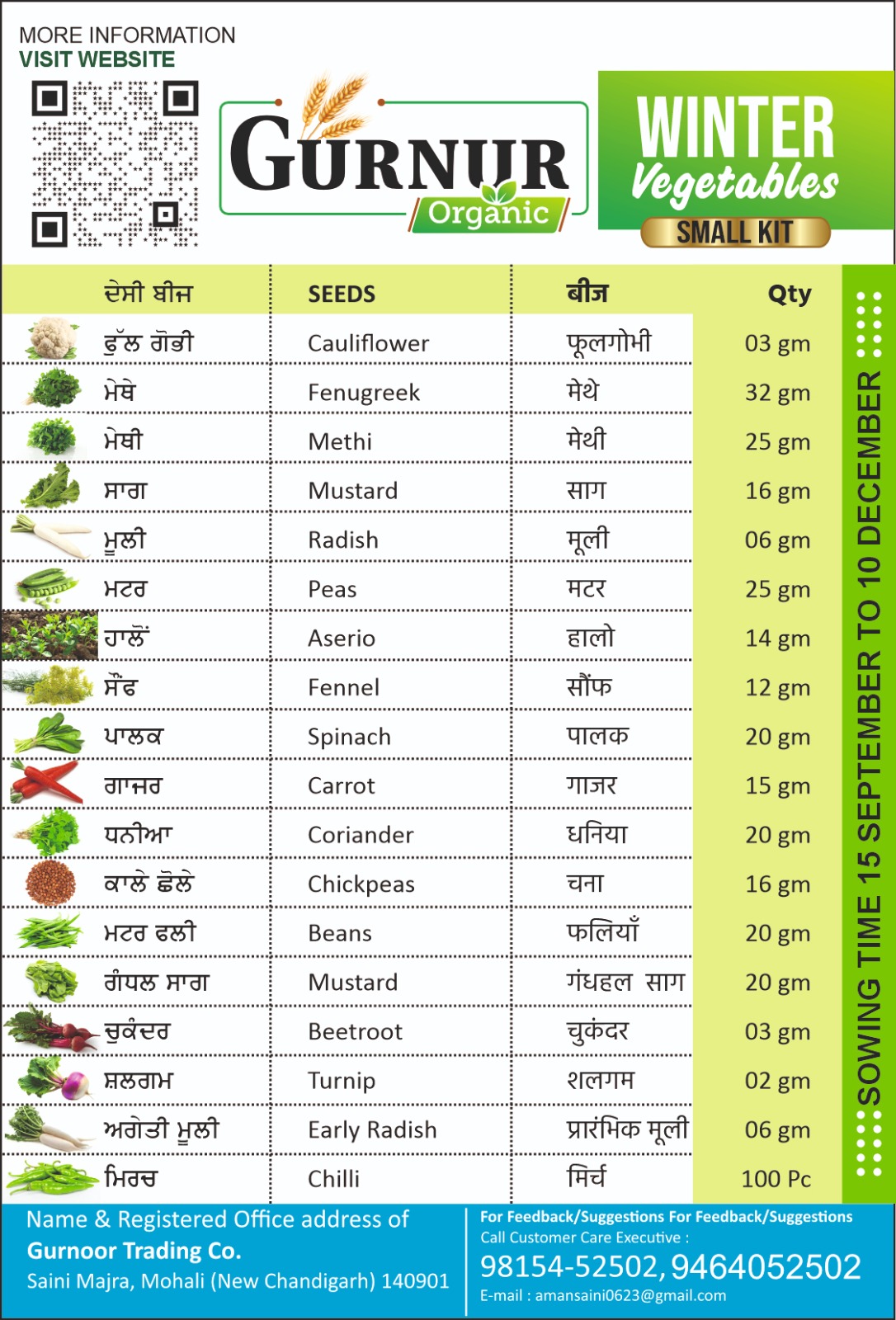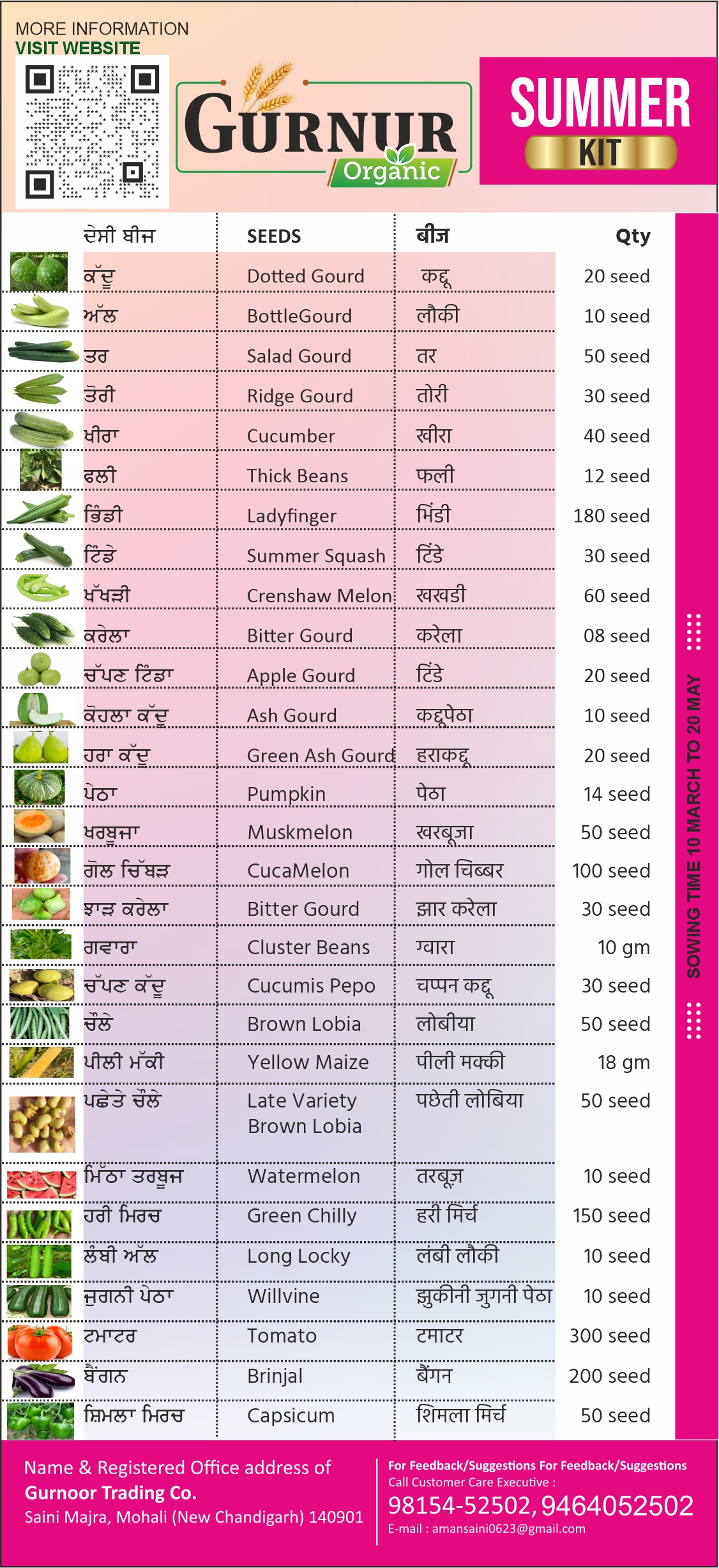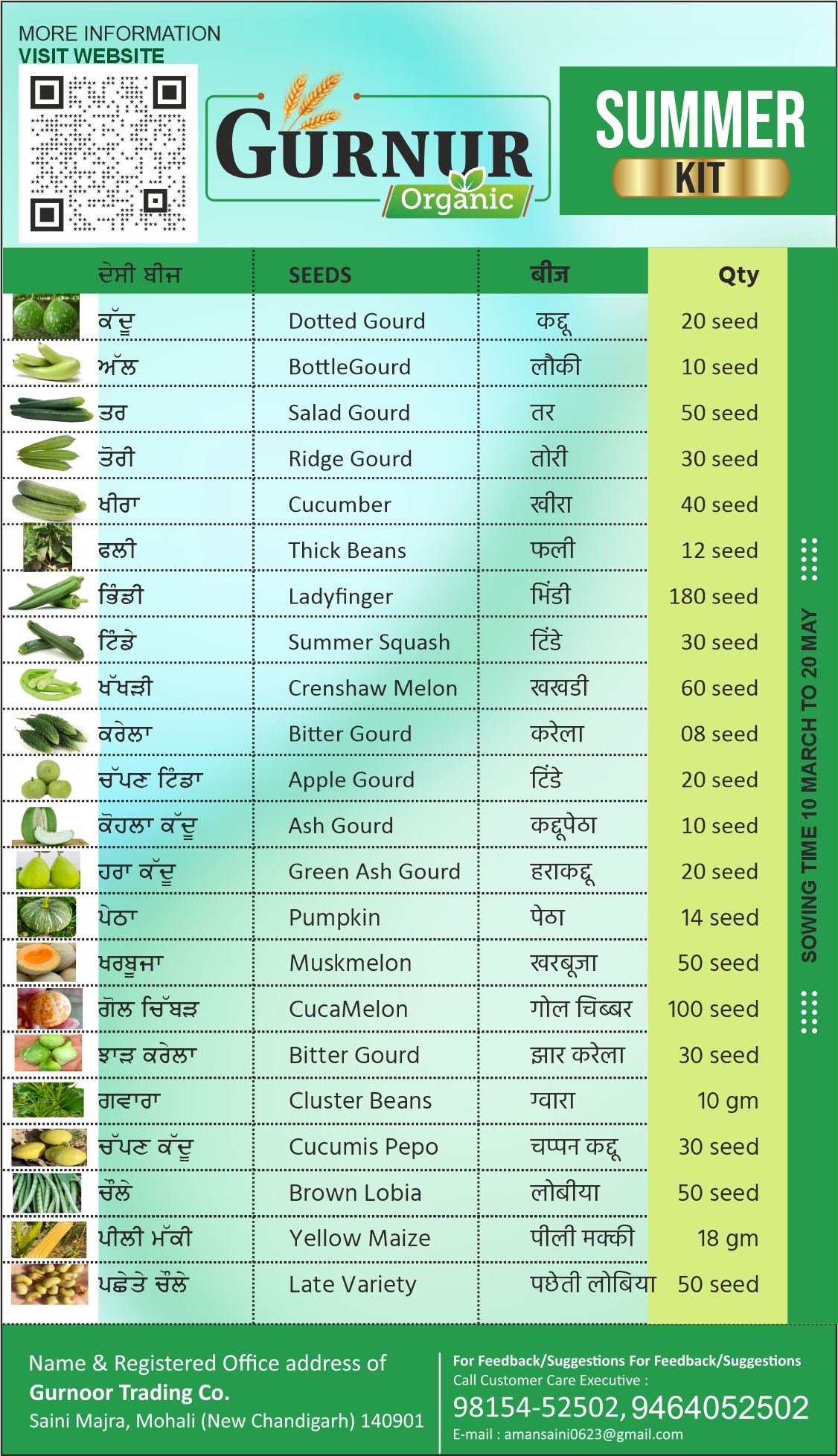Summer Kit
₹ 750
|| 100 Gm
Desi vegetable seeds, also known as heirloom, indigenous, or traditional seeds, represent a rich tapestry of agricultural heritage, reflecting centuries of adaptation to specific regional climates and culinary preferences. They stand in stark contrast to modern hybrid or genetically modified varieties, offering a unique blend of biodiversity, flavor, and cultural significance. Here's a comprehensive description:
Characteristics of Desi Vegetable Seeds:
- Varietal Diversity: Desi seeds encompass a wide array of vegetable varieties, each with its unique characteristics. You'll find diverse shapes, sizes, colors, and flavors that are often absent in commercial hybrids.
- Growth Patterns: Desi varieties may exhibit different growth patterns compared to hybrids. They might have longer growing seasons, require specific cultivation techniques, or produce yields that are different from modern cultivars.
- Seed Saving: One of the most significant advantages of desi seeds is the ability to save seeds from your own harvests. This empowers farmers and gardeners to become self-reliant and maintain their own seed stocks.
- Natural Resistance: Desi varieties often display natural resistance to local pests and diseases, reducing the need for chemical pesticides.
- Variable yields: Because they are open pollinated, and haven't been bred for maximum yield, yields can be variable.
Desi vegetable seeds, also known as heirloom, indigenous, or traditional seeds, represent a rich tapestry of agricultural heritage, reflecting centuries of adaptation to specific regional climates and culinary preferences. They stand in stark contrast to modern hybrid or genetically modified varieties, offering a unique blend of biodiversity, flavor, and cultural significance. Here's a comprehensive description:
Characteristics of Desi Vegetable Seeds:
- Varietal Diversity: Desi seeds encompass a wide array of vegetable varieties, each with its unique characteristics. You'll find diverse shapes, sizes, colors, and flavors that are often absent in commercial hybrids.
- Growth Patterns: Desi varieties may exhibit different growth patterns compared to hybrids. They might have longer growing seasons, require specific cultivation techniques, or produce yields that are different from modern cultivars.
- Seed Saving: One of the most significant advantages of desi seeds is the ability to save seeds from your own harvests. This empowers farmers and gardeners to become self-reliant and maintain their own seed stocks.
- Natural Resistance: Desi varieties often display natural resistance to local pests and diseases, reducing the need for chemical pesticides.
- Variable yields: Because they are open pollinated, and haven't been bred for maximum yield, yields can be variable.

